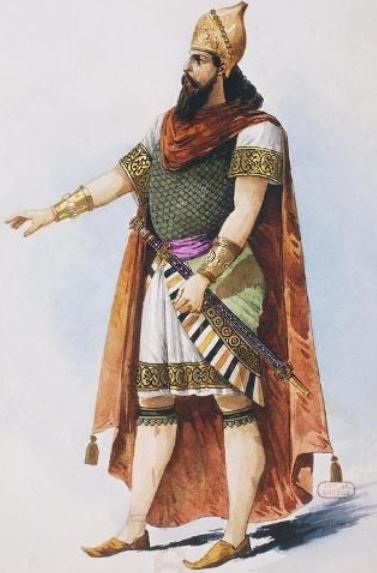Abimelech (also spelled Abimelek) is a name associated with several figures in the Hebrew Bible, each with distinct stories and roles. The name “Abimelech” means “My Father is King” in Hebrew, which may have contributed to its use by multiple individuals in biblical narratives.
1. Abimelech, King of Gerar
Biblical Context
One of the most notable Abimelechs is the king of Gerar who appears in the narratives involving Abraham and Isaac. This Abimelech is mentioned in the Book of Genesis, where he interacts with both patriarchs.
Interactions with Abraham
In Genesis 20, Abraham sojourns in Gerar and introduces Sarah, his wife, as his sister to avoid potential danger. Abimelech takes Sarah into his household, believing her to be unmarried. However, God intervenes and reveals to Abimelech that Sarah is married. Abimelech then returns Sarah to Abraham and is rebuked but also blessed by Abraham, who prays for him. This story emphasizes themes of divine intervention and the protection of the patriarchal lineage.
Interactions with Isaac
A second encounter with an Abimelech occurs in Genesis 26, involving Isaac. Here, Isaac also sojourns in Gerar and repeats his father’s strategy by claiming Rebekah as his sister. Like his father, Isaac’s claim is discovered, and Abimelech rebukes him for misleading him. Abimelech then makes a covenant with Isaac, showing a relationship of peace and mutual benefit.
2. Abimelech, Son of Gideon
Biblical Context
Another significant figure named Abimelech is the son of Gideon (also known as Jerubbaal), a judge of Israel. This Abimelech’s story is found in the Book of Judges, particularly in Judges 8 and 9.
Rise to Power
After Gideon’s death, Abimelech, who is one of Gideon’s sons by a concubine, seeks to establish himself as the ruler of Shechem. He murders his seventy brothers, except for Jotham, to eliminate any rivals to his rule. Abimelech’s reign is marked by violence and instability, as he seeks to consolidate power through fear and force.
Downfall
Abimelech’s rule is characterized by conflict and treachery. His leadership leads to strife within Shechem, and he faces opposition from the city’s leaders. His reign ends in disaster when a woman drops a millstone on his head during a siege, mortally wounding him. To avoid being remembered as having been killed by a woman, Abimelech asks his armor-bearer to kill him.
3. Abimelech in Other Contexts
Other Mentions
The name Abimelech also appears in other biblical contexts, though these figures are less prominent. In general, the name is associated with kings or leaders in conflict situations or stories involving divine intervention and moral lessons.
The figure of Abimelech in the Bible represents a range of narratives and themes, from divine intervention and protection in the cases of the kings of Gerar to the destructive ambition and eventual downfall of Gideon’s son. Each Abimelech contributes to the broader biblical themes of leadership, morality, and the consequences of human actions. Understanding these stories provides insight into the complex and multifaceted nature of biblical characters and their roles in the history and theology of ancient Israel.




